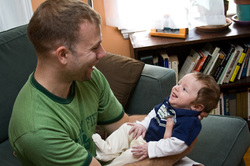
 Relationships have many rewards. Keeping the relationship exciting, alive and meaningful requires some attention. Like a garden with its many rewards of fruits, beauty, and other enjoyment, some weeding, cultivating, and watering of the relationship keeps it going. Many of us our prone to create roles we play with each other and this can be helpful. Part of attending to relationships means some important self-examination. Like autumn with its dying leaves and plants, self-reflection involves assessing what is not working. However, when conflicts arise, not enough self-awareness can result in the excessive pointing of fingers, or taking too much blame when conflicts are mutually created. Additionally, more clarity of thought and feeling will likely result from the process of self-examination. Being aware of our contribution to things can help us start afresh with conflicts and mis-communications that seem to be stuck and going nowhere.
2 Comments
 Feeling put down? Not heard? Cheated on? Partner is an addict? Neglected? Abused? When serious difficulties occur in a relationship, a common reaction from supportive family and friends can be, "Leave him/her!" While I would never argue for putting up with abuse, mistreatment, or staying in a relationship that does not ever seem to go somewhere, just leaving as if your partner's behavior is the entire problem may be a missed opportunity. Apart from whether you have a future together, stepping back from the relationship and asking some questions may help you learn some things about yourself. If you do not, it is fairly likely you will find yourself with a person with whom the same sorts of conflicts, and other related issues happen all over again. Why is this? We usually connect with what is familiar, and to our surprise, even when the person seems completely different, we may find that we keep the same patterns going. Relationships are mutually created. Even when it seems that your partner is the "bad guy," it is important to learn from the way a relationship evolves to learn from those interactions and change not only our communication, but what kind of a partner truly fits with us. These behaviors, including infidelity, are commonly symptomatic of some greater relationship difficulties. This learning can be rewarding. Sometimes a negative relationship can change, and at other times when only one partner changes, the partner making the changes may find they can relate to others in more rewarding ways, leaving less space for being mistreated, and more space for more positive interactions/relationships. You might say a relationship is like two pieces of a puzzle that fit together a certain way. If you change your shape, it will only more easily fit with other pieces (ways of relating) to people who fit better.  The image of a pleasing and happy moment like this man and very young child is beautiful, but if anyone has every raised or spent much time with very little ones, you know the "work" of taking care of the needs of a young one can make moments like these golden and not as common as we would like. The best relationships have to work to communicate well. While in post-doctoral program, I was to learn that research shows that even the best parents are emotionally attuned to their children about 30% of the time. This may not seem to be very much. Part of my interpretation of these results is that those parents must be spending a good part of the rest of that 70% trying get back on track with what is happening with their children. Might this be true of adult relationships? I tend to think so. Communication seems to be never perfected, but merely worked at. Many couples feel bad that they are not communicating better. I have found that couples that are more satisfied with their relationship have accepted their continued mis-communications and learn to be curious on a regular basis, with what happened when they were not understanding each other. This idea can result in changing our idea of what a good communicator is. Is it someone who perfects it, or simply someone who is able work from moment to moment on how the relationship is unfolding? This takes more work than simply having rules for each other. It requires more patience, persistence, and tolerance of shortcomings.  Relationships are central to our lives, whether giving us a start in life, nurturing our talents, bringing happiness and joy, giving purpose to what we do, and so on. Relationships also introduce new complexity, challenges, and at times, conflict as well. I invite you to join me on this journey of exploring issues related to relationships and our lives. Today, as we begin a new year, it is as good as time as any to take stock of our relationships. What are our blessings? What areas are we missing out on? What can we do to to make things better? I hope this very simple beginning gives you pause to reflect and wonder about where things are for you as a beginning for our journey together... |
steve harris, phdLicensed Psychologist Archives
January 2022
Categories
All
|
 RSS Feed
RSS Feed